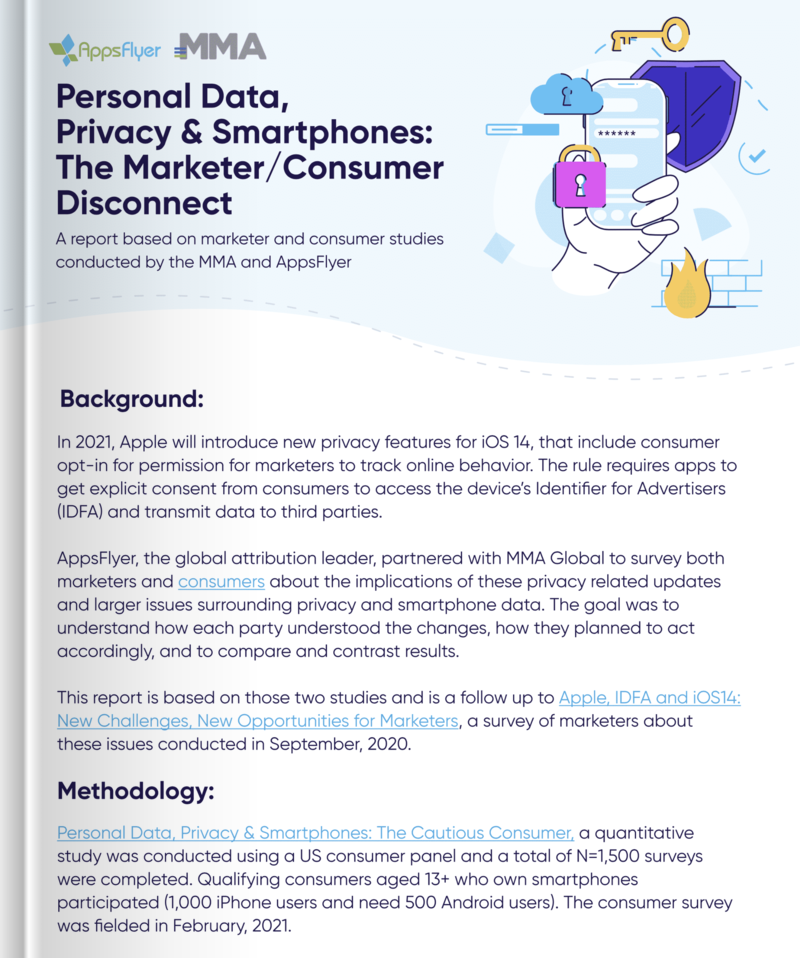
Released:
March, 2021
Education Section:
Press Release Reference:
Region:
In June of 2020, Apple announced that with the introduction of iOS14, new privacy features would include consumer opt-in for permission to track.
In partnership with Appsflyer, the MMA conducted research with marketers about the implication of these privacy related updates to their business outcomes, how marketers and app developers are thinking about, planning for and changing operationally for the new world of privacy and data limitations and how consumers are thinking about data privacy in light of the Apple iOS 14 update to a full opt in system for data usage—which other companies are likely to follow.
Some of the key findings include:
- Marketer familiarity with Apple’s IDFA changes has increased since September. Within half a year, awareness has nearly doubled, with the share of Marketers stating that they are familiar with the new privacy protocols increasing from 28% to 48%. Still, more than half are “not very familiar” with the upcoming changes.
- Consumers are less likely to allow tracking than marketers expect them to (47% vs. 29%) and are much more likely to approve of Apple’s decision to allow them to decide whether they will be tracked.
- Marketers underestimate the degree to which consumer concerns about online privacy influence their online behavior. Sixteen percent of marketers think that such concerns impact consumer behavior, while 44% of consumers say it does.
- Marketers expect that making ads less repetitive ads (“frequency capping”) and better content quality are key incentives for consumers to allow tracking. Forty-five percent of consumers say that none of these factors would make them more likely to opt-in to tracking.
- Marketers overwhelmingly (83%) acknowledge that the industry has done a poor job educating consumers about data usage and the potential consumer value of tracking.
